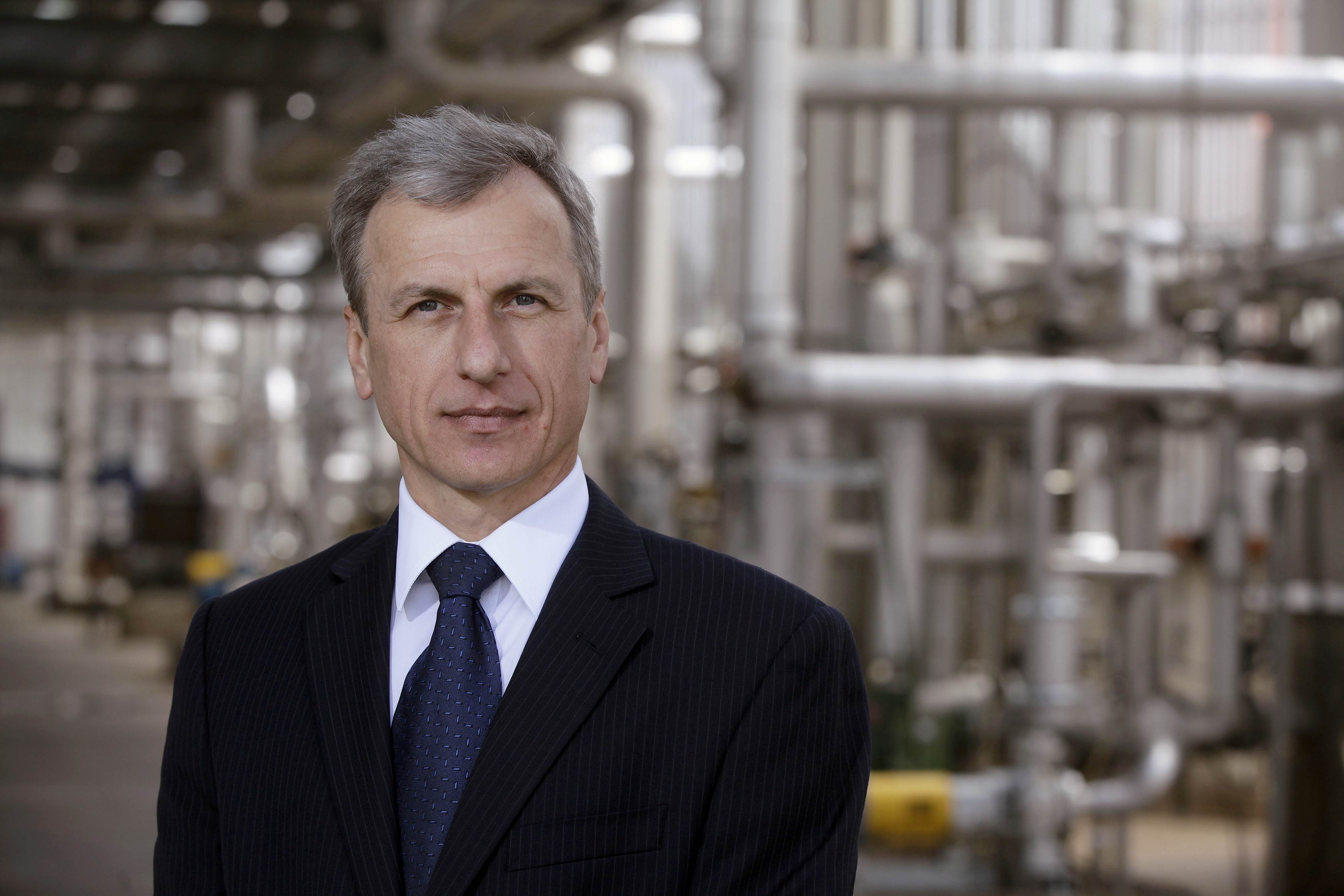Pannonia Bio Says it Continues to Invest in Biorefinery Future

Ferenc Hódos, Pannonia Bio Zrt.’s strategic director.
Despite a challenging year, the owner of Europe’s largest biorefinery says it is continuing transformative investments into food chain resilience and energy security. Given the economic impact of COVID and now war, and the environmental imperative to find alternatives to fossil fuels, that seems timely, to say the least.
The operating profits of advanced biorefinery company Pannonia Bio Zrt., based in Dunaföldvár (100 km south of Budapest by road), fell by 30% in 2021 compared to 2020. The company did manage to maintain healthy income levels through its financial operations during what it described as a rather trying year.
Ferenc Hódos, the company’s strategic director, drew attention to the company’s 2020-2022 EUR 200 million investment program.
“Recent events only reinforce the extent to which our investments are necessities for a European community that needs both food chain resilience and energy security that also benefits the planet,” he told reporters.
“While our investments have been deeply adversely impacted by the unprecedented supply chain failures and price spikes of the last year, all of our planned investments will be completed and commissioned by the end of this year,” Hódos insisted.
“Pannonia Bio has always been a constructive partner for Hungarian agriculture, a significant source for Europe of GMO-free protein meals for animal feed, a large producer of large scale GHG savings bioethanol, and the source of thousands of ‘just transition’ jobs in the Hungarian countryside,” he added.

Pannonia Bio finance director Lajos Dobai.
Challenging Headwinds
Finance director Lajos Dobai commented on the company’s financial results last year: “As a result of the challenging headwinds across Pannonia’s markets in 2021, our core operating profit fell by approximately 30%, a result that we believe is typical in our industry given our exposure to volatile commodity markets,” he said.
“However, management put in place a well-considered series of financial hedges, in addition to our well-timed energy efficiency upgrades, and Pannonia’s 2021 income exceeded that of 2020. As a result, we generated EUR 104 mln in after-tax profit, about 10% more than last year,” Dobai said.
“Our strong cash flow has been important since we also paid out EUR 84 mln in capital expenditures and EUR 4 mln in R&D expenses in 2021, and we anticipate similarly high levels of investment in 2022,” he promised.
Pannonia Bio says it runs the largest single-site grain biorefinery in Europe at Dunaföldvár. The company continues to invest in research and development, venturing into new areas and product lines such as high-quality protein products as food ingredients for both human consumption and natural animal feed.
The company, which started production in Dunaföldvár in 2012, produces 500 million liters of bioethanol a year from more than one million tonnes of maize. It also turns out animal feed, corn oil, and soil improver.
The feedstock processed is sustainably grown corn and barley almost exclusively sourced from Hungarian farmers. Pannonia Bio claims it is a proving ground for the world’s most advanced innovations in grain processing. According to the company, the next stage in the development will be a world-first barley processing plant.
Fewer Greenhouse Gases
Pannonia Bio produces high-value GMO-free proteins (for animal and, increasingly, human nutrition), organic fertilizer, advanced biomethane, and bioethanol/alcohol, used in an increasing range of industrial applications, from hand sanitizers to the food industry, as well as a sustainable biofuel. The latter product emits 80% fewer greenhouse gases than fossil fuel-based products and thus efficiently helps lower Hungary’s dependency on imported fossil fuels.
In 2020, the Dunaföldvár biorefinery of Pannonia Bio Zrt. produced, on an annualized basis, more than 350,000 tonnes of GMO-free high-protein animal feed, more than 10,000 tonnes of corn oil, more than 10,000 tonnes of organic fertilizer, more than 500 million liters of bioethanol, and more than 200,000 MWh of advanced biomethane from more than one million tonnes of locally produced maize, according to its own figures. It exports to more than 35 countries.
In October of last year, a new plant, which mainly produces bioethanol, was inaugurated at the Dunaföldvár site, creating 15,000 tonnes of soil improver with a high organic matter content per year. According to the company, this new facility has started to produce fermented soil improvers from maize straw, creating a new market for the company.
As of this year, Pannonia Bio will become a key source of alternative vegetable proteins, organic fertilizer and advanced biomethane.
Pannonia Bio’s principal subsidiaries also experienced success last year. Pannonia Solar Zrt. owns 43 operating solar projects and saw the final completion and commissioning of its portfolio. Across the border to Hungary’s southwest, Pannonia Bio Gas d.o.o. is now the largest biogas producer in Slovenia.
“We are optimistic about Pannonia’s breakthroughs in alternative proteins and seeing these come to market over the course of 2022, and we are confident that 2022, despite all of its challenges, will be a strong year,” said CEO Pavel Kudriavtcev.
Interestingly, Kudriavtcev joined Pannonia Bio from Dreher Breweries in Hungary. Prior to this, he worked in breweries owned by SABMiller in Russia and is also a qualified brewer. According to Pannonia Bio’s website, he has extensive manufacturing and supply chain expertise.
This article was first published in the Budapest Business Journal print issue of June 3, 2022.
SUPPORT THE BUDAPEST BUSINESS JOURNAL
Producing journalism that is worthy of the name is a costly business. For 27 years, the publishers, editors and reporters of the Budapest Business Journal have striven to bring you business news that works, information that you can trust, that is factual, accurate and presented without fear or favor.
Newspaper organizations across the globe have struggled to find a business model that allows them to continue to excel, without compromising their ability to perform. Most recently, some have experimented with the idea of involving their most important stakeholders, their readers.
We would like to offer that same opportunity to our readers. We would like to invite you to help us deliver the quality business journalism you require. Hit our Support the BBJ button and you can choose the how much and how often you send us your contributions.








